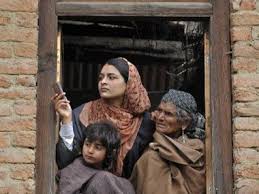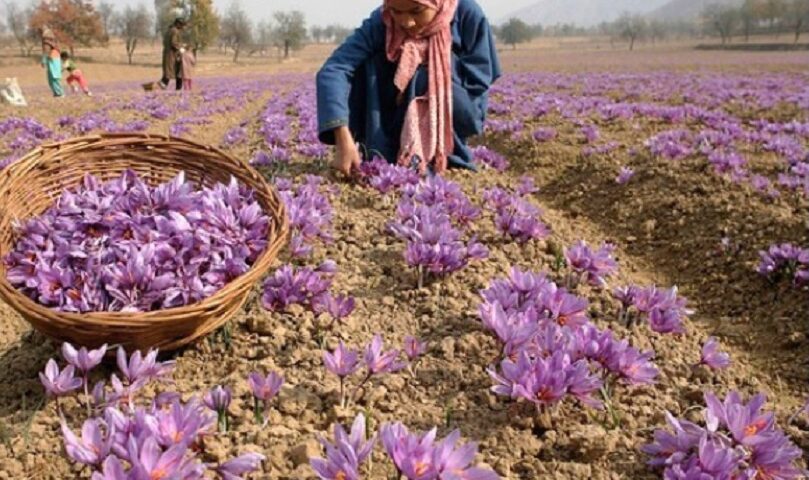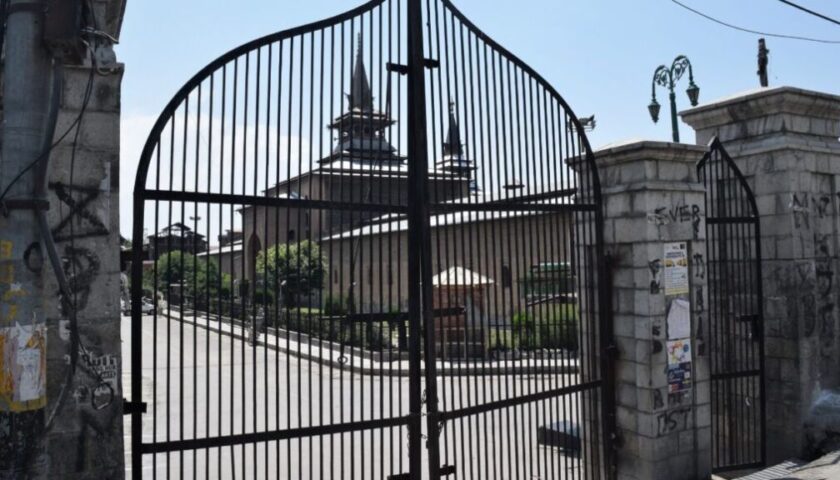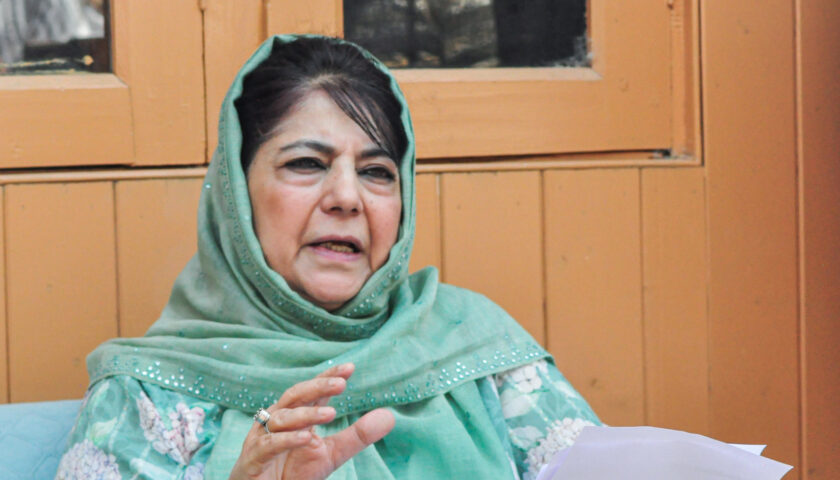The soaring number of braid-chopping incidents, which are showing no signs of relenting, have claimed an unlikely victim in Kashmir: Lovebirds!
As braids of more than 180 women have been chopped off in Jammu and Kashmir in over a month, the boys are falling prey to hysterical mobs who seek explanations about their presence in and around the homes of their girlfriends. Strangers roaming on the streets are seen with eyes of suspicion, and on many occasions, have been manhandled or assaulted if they weren’t able to explain their presence in the area.
This is what happened on Wednesday when Muzaffar Ahmad Wani, a resident of Khalmulla area of Ganderbal in central Kashmir, who had gone to give a SIM card to his girlfriend, was mistaken for a braid chopper and severely beaten up.
“Ratuen ho yi, yohaie ha chue (catch him, he is the one),” shouted a boy, along with two-dozen other youngsters. Wani was speaking with his girlfriend, outside her sister’s house. The scene was captured by the ‘jubilant’ crowd on their mobile phones. “They thrashed me mercilessly. I am not able to stand,” Wani said while waiting at a police station in Ganderbal district. “I could not even tell them that she is my girlfriend and that we are getting married.”
The police soon arrested Wani but during interrogation found he was no braid chopper, but had only gone to meet his girlfriend. “There were some anti-social elements who caught hold of him and beat him up,” SSP Ganderbal Fayaz Ahmad Lone said. “He is not a braid chopper.”
Kashmir has traditionally been a conservative society where men and women freely fraternising is considered a taboo, often attracting social stigma and even ostracisation in a few cases. There is hardly any public place in Kashmir where youngsters can meet. Even in this day and age, parents still prefer to send their girl-child to girl-only schools. The public display of affection, even among married couples, is considered inappropriate.
A majority of youngsters in Srinagar prefer to either meet in cafés or go to Botanical Garden, a sprawling nursery on the foothills of Zabarwan Hills on the banks of Dal Lake, where couples find some space to cherish moments of togetherness. In rural areas, no such luxury is possible neither available.
On 3 October, Nayeem Ahmad Malla, a resident of Dandusa area of Rafiabad in north Kashmir’s Baramulla district had gone to meet his girlfriend in Delina area when he was caught by people and mercilessly thrashed. The entire incident was captured on a Facebook Live.
Malla, a teenager, was beaten ruthlessly, according to police but he kept his mouth shut. The Baramulla police swung into action and before being attacked with stones, they managed to rescue the boy by firing tear smoke shells. This video of Nayeem took the Internet by storm, but it was after the police arrived and took the boy in their custody that they realised he was not a braid chopper, but in love with a girl.
“Nayeem was in a relationship with a local girl from Delina village and had gone to meet her when he was spotted and beaten up by locals there who accused him being braid chopper,” a police statement said. More then 180 incidents later, police on Wednesday claimed that a girl, who said her braid was chopped off the previous night in Baramulla, was suffering from “psychiatric ailment with dissociative symptoms”.
Despite presiding over a vast intelligence network in Kashmir, the Jammu and Kashmir Police’s failure to make any headway in the braid-chopping incidents has now vitiated the fragile atmosphere in the Valley where a semblance of peace had returned after months of killings and shutdowns.
Instead of being a law and order issue, the braid chopping is fast gaining political colours with even the separatists joining the mobs in accusing the ‘security agencies’ of being behind the incidents. Strangely enough, Kashmir police has a huge network of informers and intelligence gathering system at its disposal but not a single arrest has been made yet in more than 180 incidents reported across the state.
Chief of police in Kashmir, Munir Khan, told reporters recently that victims are reluctant to record their statements which is hampering the probe. “How can we reach to truth when victims are not ready to record their statements? It is unfortunate that victims are not ready to help the police,” Khan said.
But the question one needs to ask is: If the police can trace a hideout of a militant in some remote forest of Kashmir, what stops it from making some headway in braid chopping cases. The police has killed more than 150 militants with human and technical intelligence in last few months but one fails to understand why they are resorting to the laziest method of policing by announcing ‘reward’ for anybody who informs about the ‘braid choppers.’
For the moment, the fear of braid choppers has terrorised people to the extent that young girls prefer to return home early, restaurants in Srinagar are empty and public parks have again started registering higher footfall as lovers avoid going near the homes of their girlfriends.
“Now I fear going to the areas which I don’t know or where I will be seen as a stranger, leave aside going close to the home of my girlfriend where a mob may be waiting to lynch me,” Sadiq Mushtaq, a student in Srinagar said.
“As soon as sun sets, I start getting calls from my mother about my whereabouts. I avoid taking an auto to home and instead prefer a bus or shared taxi. At home, doors are locked well before evening. People are obviously scared and their fear is multiplied by the fact that not a single case has been solved so far,” Rosheeba Farooq, a resident of Srinagar’s upscale Sanat Nagar locality said.




